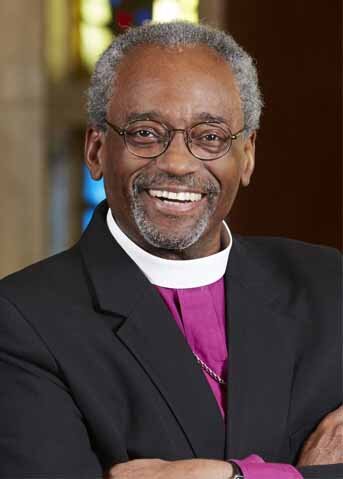For the Church to live and thrive, it must get closer to the risen Christ!
/(Based on a recent Anglican Journal article)
“The church has always—Christians, I’m not using ‘church’ as an institution, necessarily—the church has always been strongest the closer it has been to Jesus of Nazareth and his actual teachings and his spirit,” said Bishop Michael Curry recently in an interview with Joelle Kidd of the Anglican Journal. “It has tended to be weakest, frankly, the more aligned it is with the status quo in the actual society.”
The 27th and current presiding bishop of the U.S.-based Episcopal Church, Bishop Curry came to international attention last year when he preached at the wedding of Prince Harry and Meghan Markle. In a wide-ranging discussion with the Journal while attending the meeting of General Synod in Vancouver, he spoke about the health of the church, cross-border church relationships and his post-royal wedding fame.
“If we are about preserving ourselves as an institution, and our institutional structures, then we are at the mercy of the cultural forces around us,” the engaging, animated bishop shared. “If we are about following the risen Christ, this Jesus of Nazareth, and making our witness in the world, then we will figure out how to navigate with maybe less money or fewer people. We will figure out how to navigate if we have more money and more people. That won’t matter. What will matter is the closer we are to this Jesus of Nazareth, and following his actual teachings—not just the idea of it, but his real teachings.”
“ … when our consciousness of being Christian is dependent on our institutional forms, then we’ve missed the point,” he went on. “We’ve substituted the outward form for the inward reality—and it’s the inward reality that endured.
Episcopal Church Presiding Bishop Michael Curry speaks at the church's 79th General Convention in 2018. Photo: Asher Imtiaz /The Living Church
“There’s a collect that prays that we ‘hold fast to things eternal, even as we pass through things temporary.’ That is what we must do.”
And what about his new-found notoriety? Do more people notice and approach him now?
“That does happen,” he admitted. “The nice thing is, it has opened up conversations with people—conversations about real stuff.”
You can read the interview, edited for length, at the Anglican Journal site here.








